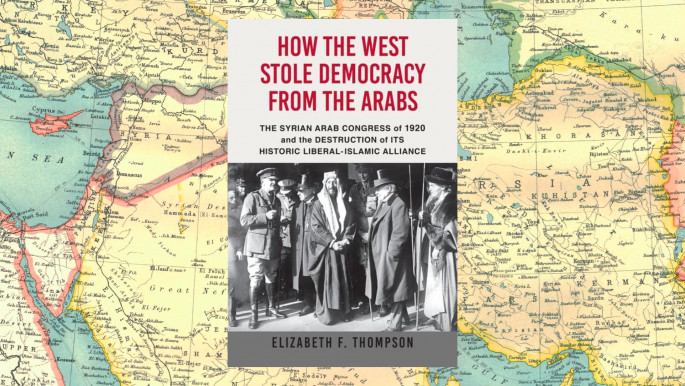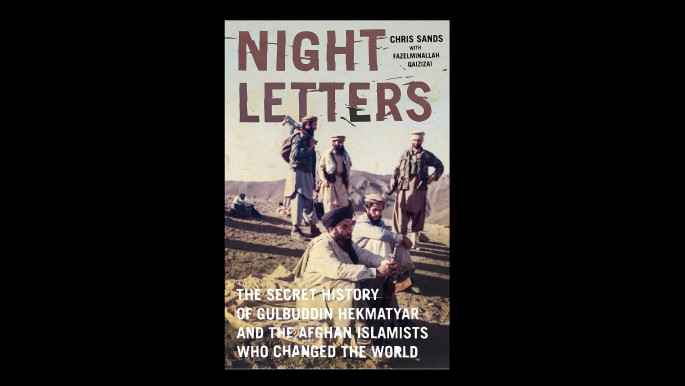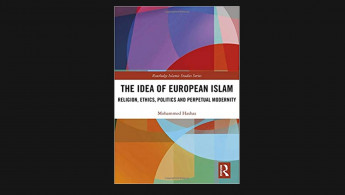Is 'European Islam' the future of Western Muslim identity?
Following two failed incidents at British airports in 2007, EU policymakers met in Brussels to discuss how to tackle violent extremist and engineer a peaceful, so-called "European Islam" or an "Islam of Europe," as suggested a year earlier by Nicolas Sarkozy.
The aftermath of these occurrences lead to addition questions about who speaks for the Muslims of Europe, whether Islam be a fully European religion, and what impact will the growing Muslim population have on the continent.
Mohammed Hashas, an academic specialising in European Muslim and Arab-Islamic intellectual history, attempts to answer some of these questions in his latest book The Idea of European Islam.
He has published number of works on prominent intellectuals including, State and Modernity: Mohamed Abed al-Jabri and the Future of the Arab World, Intercultural Geopoetics: An Introduction to Kenneth White's Open World and Imams in Western Europe: Authority, Training and Institutional Challenges.
In this new study, Hashas makes a major contribution to the debate about Muslim identities in Europe by surveying the thought of some of its leading thinkers.
 |
The notion of a 'European Islam' predate the securitised policy discourses after the 2001 terrorist attacks on America and have been a work in process for decades |  |
In doing so, he points out that the notion of a 'European Islam' predate the securitised policy discourses after the 2001 terrorist attacks on America and have been a work in process for decades.
The first part of the book contextualises the debate, probes the possibilities of an organic, modern Europeanised Muslim identity and argues that it can be justified historically, theologically and politically.
The author does this through a critical reading of the works of Bassam Tibi, Tariq Ramadan, Tariq Oubrou, and Abdennour Bidar and explores how they attempt to provide new theological and philosophical responses to the challenges of living faithfully in a minority context.
The second part illustrates the ongoing efforts of these thinkers to conceptualise models of citizenship and articulate their versions of Muslim political theology, in contrast to existing forms in Muslim-majority countries.
 |
|
| Read more from TNA's Book Club: How the West Stole Democracy from the Arabs |
It also draws on the scholarly frameworks from two major philosophers to evaluate the idea of European Islam in the context of secular-liberal societies by drawing on the writings of Moroccan moral philosopher Taha Abderrahmane and the American political philosopher John Rawls.
The first chapter examines what Bassam Tibi's labels "Euro-Islam." For Tibi, Islam is a "cultural system" that should adapt to its European context, and seeks to disassociate Islam from fundamentalism and politicised versions of the religion.
He advocates the depoliticisation of faith, embrace of secularism, liberalism and a rationalised conception of the world.
Chapter two examines Tariq Ramadan's version of European Islam, articulated most clearly in his book To Be a European Muslim and separates his intellectual career into two stages – "early Ramadan" and "late Ramadan."
Hashas evaluates his reading of Islamic theology, role of the Quran and the Sunnah of the Prophet, juristic tradition and traces the influence of modern reformist thinking on his project.
He also examines Ramadan's deployment of three concepts: "Sharia as the way" "Europe as the abode/space of testimony" and "ethics in the continuum, for pluralism beyond legalism" as well as proposals from his more recent output.
The third chapter introduces Tareq Oubrou's legal and theological project and highlights his readings of the Quran in the European context and use of Islamic classical jurisprudential devices.
Hashas summarises Oubrou's work into three major concepts; "Geotheology," "Sharia of the minority," and "European Islam."
This leads Oubrou to the following proposals — the "relativisation" of religious norms in the light of time and space changes; the "minoritisation of Islam" through the endorsement of pluralist values like liberty and equality; and "localisation of religious authority" through the "nationalisation" of religious discourse.
This in effect "localises" religious authority by "nationalising" it and has led Oubrou to 'provide an Islamic cover for new and unorthodox Muslim practices.'
Chapter four explores the ideas of Abdennour Bidar, a relatively younger thinker who has attempted to develop a novel theoretical framework for developing European Islamic thought that is neither Eurocentric nor Islamocentric.
According to the author, Bidar thinks that Europe is ideally suited to the reform of Islam and advocates an existentialist approach that he calls "Self Islam."
The fifth chapter argues that the efforts to craft a European Islam are leading to a 'mild ontological revolution' and an 'epistemological awakening'.
 |
The fifth chapter argues that the efforts to craft a European Islam are leading to a 'mild ontological revolution' and an 'epistemological awakening' |  |
Hashas also argues that these different competing projects ultimately do not sever their links to the classical ontological-epistemological bond of reason and revelation that have characterised normative Islamic scholarship.
This is perhaps not surprising given that they all strive to achieve legitimacy and continuity with the genealogical legacies of the Islamic intellectual tradition.
Chapter six brings the ideas of these four thinkers into conversation with the work of noted contemporary Arab philosopher Taha Abderrahmane, via his "trusteeship paradigm framework for renewal of Islamic thought".
Hashas applies Abderrahmane's triad for understanding the Quran "humanisation-rationalisation-historicisation," and uses three other axes/levels of analysis to evaluate attempts at grafting a European Islam.
The following chapter continues to use Abderrahmane's paradigm to critique the perception of an opposition between religion/modernity and reason/religion.
The final chapter is intended as a "thought experiment" to synthesise political theology and political philosophy by utilising the theories of John Rawls and brings classical and modern articulations of the defence of social justice in Islam into a conceptual exchange with Western political liberalism and its iteration of justice.
 |
|
| Read more from The New Arab's Book Club: Night Letters: Gulbuddin Hekmatyar and the Afghan Islamists who Changed the World |
Hashas contends that the project for a European Islam can be considered as an instance of "reasonable comprehensive doctrine" in light of the Rawlsian liberal framework of "overlapping consensus" and also can offer moral grounds for political stability in a "well-ordered-society."
Concluding the book, the author asks "Can European Islam be inspiring to the Arab world?" This has become a source of hope for observers who agree with Richard Bulliet's contention that historically, the impetus for change in Islam often came from the edge rather than the central lands of Islam.
The innovate and creative intellectual projects taking place among European Muslims and Western Muslims more broadly have the potential to influence "Arab Islam"( and the Muslim world more generally), in light of the multiple networks between Europe and the Arab world.
Reading this dense, well argued study, it is striking that all the thinkers covered in this book are men of immigrant Arab origin.
Serious engagement with matters of European Muslimness among indigenous believers in the English language is less visible, other than the writings of Tim Winters (aka Abdal Hakim Murad) from Britain, and the translated works of Tariq Ramadan.
The success of the project for a European Islam will likely be determined by how much the ideas of these thinkers permeate across diverse Muslim communities. Conservative Salafis are singled out in the book as being disinterested in acculturating into the socio-cultural fabric of Europe but, they are not alone –a number of other Muslim religious/ideological trends also resist the notion of an Europeanised Islam.
Unsettled, fractious intra-Muslim identity politics in various EU states may inhibit the emergence of an encultured Muslim identity, however, more pressingly, institutional Islamophobia, racism and economic inequalities continue to more damagingly impede the full social integration of Muslims in the West.
This publication does well to map the challenges along this journey and deserves careful attention and responses by policy makers and scholars from a wide variety of disciplines.
Dr Sadek Hamid is an academic who has written widely about British Muslims. He is the author of 'Sufis, Salafis and Islamists: The Contested Ground of British Islamic Activism' and is co-author of 'British Muslims: New Directions in Islamic Thought, Creativity and Activism'.
Follow him on Twitter: @sadekhamid
The New Arab Book Club: Click on our Special Contents tab to read more book reviews and interviews with authors:
 |



